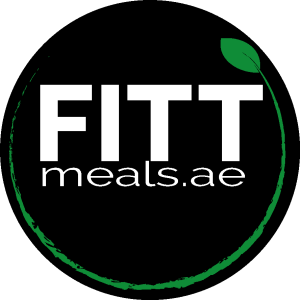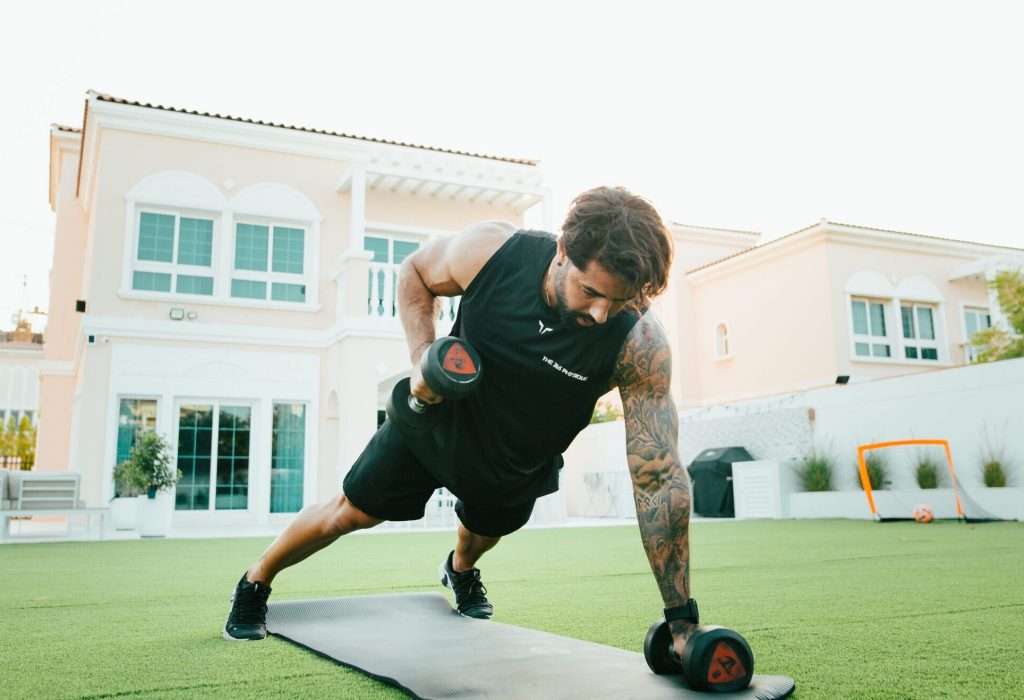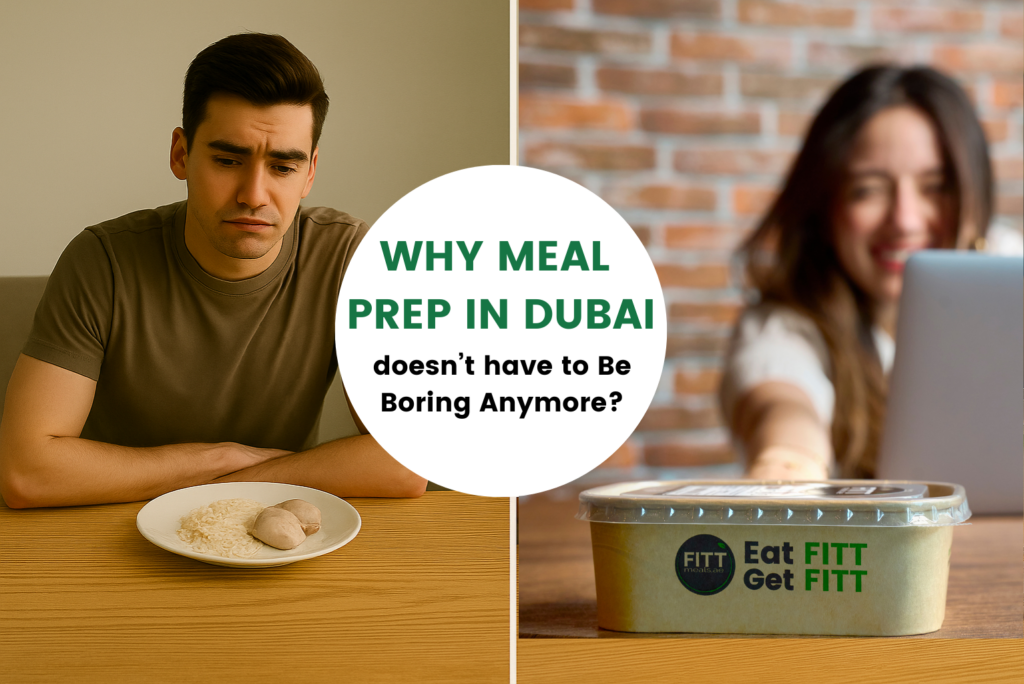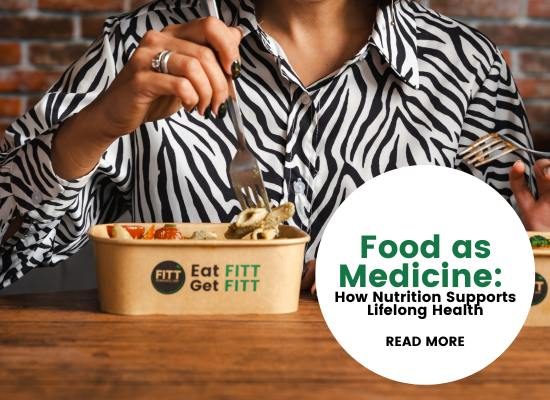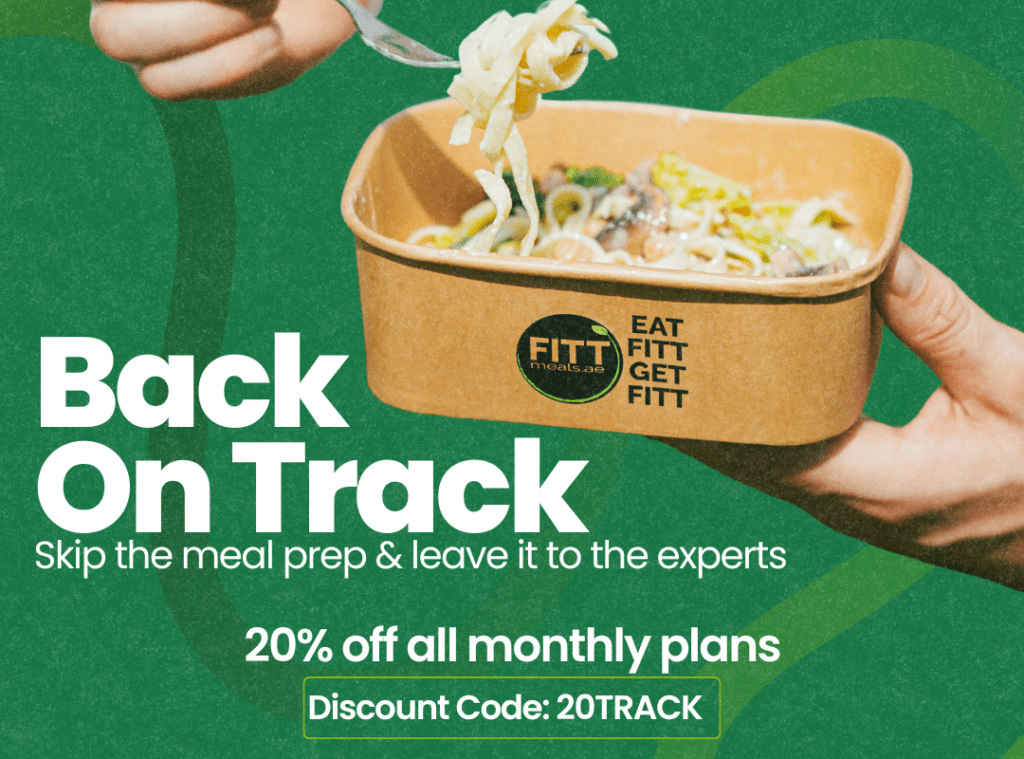The 5 Biggest Lies Dubai Told You About Healthy Eating

From: FITT Meals
Nutritionist - Helen Conway
Between social media trends, diet culture, and influencer advice, it’s no wonder so many people feel confused about what healthy eating actually looks like. One day carbs are the enemy, the next fruit is “too sugary” and suddenly you’re being told you need to drink multiple protein shakes a day. Sound familiar?
As a dietitian working with people across the UAE, I hear the same myths come up over and over again. So here’s what you really need to know about food, wellness, and what actually works in the context of a real food UAE lifestyle.
1. You need to cut out carbs to be healthy.
This is one of the most common diet myths in the UAE, and it’s wildly misleading. Carbohydrates are your body’s main energy source, especially important if you’re active, busy, or working out.
The key is quality. Try to primarily choose whole grains, oats, fruits, vegetables, and legumes instead of sugar-heavy snacks or processed pastries. Cutting carbs completely may lead to short-term weight loss, but it’s rarely sustainable. Whereas balanced meals with the right types and quantities of carbs can help improve energy, focus, and mood.
2. Clean eating means cutting out anything processed.
The term clean eating sounds admirable, but it’s often misunderstood. Not all processed food is “bad.” For example, yoghurt, frozen berries, nut butters and canned beans are all technically processed, but can definitely still be part of a healthy diet.
Living in Dubai often means busy days and packed schedules. The reality is, you don’t need to eat perfectly to eat well. You just need to prioritise nutrient-dense options and avoid overly processed foods as much as possible. That’s what a true healthy eating approach is all about.
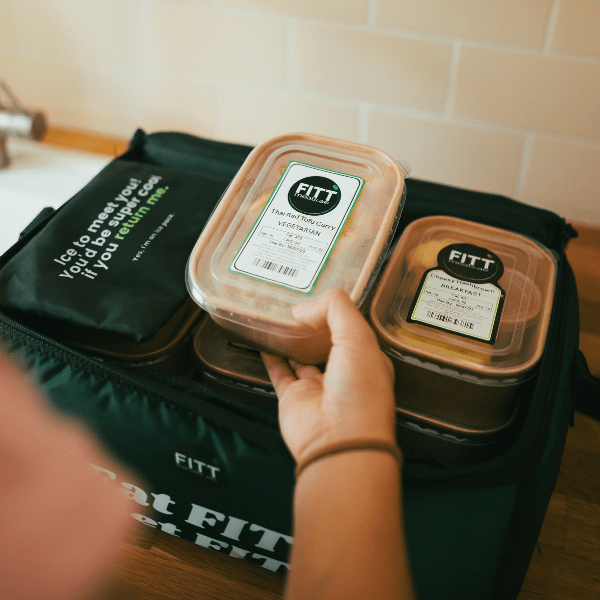
3. Healthy eating means eating less.
This idea sits at the core of diet culture in Dubai, and it’s one of the most harmful myths in circulation. The assumption that “less food = more results” often leads to under-fuelling, cravings, low energy, poor recovery and increased risks of general health risks.
Healthy eating isn’t about restriction, it’s about eating with purpose. Many people fall short on key nutrients like vitamins, minerals, fibre, or even total energy, particularly when trying to lose weight or improve fitness. That’s why FITT Meals are carefully portioned to match your goals, helping you get the right balance of nutrients, consistently.
4. You need detox teas, powders, or special supplements.
Despite what you’ve seen on social media, your body already knows how to detox itself – thanks to your liver, kidneys, gut, and skin. Detox teas, cleanses, gummies and powders are generally unnecessary and often expensive.
What actually works? Hydration, fibre, movement, sleep, and regular balanced meals. Save your money and focus on habits that matter.
5. Protein Should Be the Focus of Every Meal
Protein is important, but you don’t need to overdo it—especially if you’re not an athlete. Most adults need around 1.0–1.6g per kg of body weight daily, while those training regularly may benefit from up to 2.2g/kg. Eating more than that offers little extra benefit and may crowd out other key nutrients like fibre and healthy fats. FITT Meals provides perfectly balanced, macro-aligned meals with precise protein for your goals, adhering to international healthy eating standards.
Let’s Redefine Healthy Eating in the UAE
If you’ve ever felt stuck following Dubai wellness trends or frustrated by contradicting nutrition tips in the UAE, you’re not alone. The best results come from ditching the fads and focusing on balance, variety, and consistency.
Whether you’re after healthy food tips, meal plan truths, or just a more realistic approach to a Dubai healthy lifestyle, FITT Meals is here to help by providing meals that are designed to support your goals, your routine, and your appetite.
References
– Wu, G. (2016). Dietary protein intake and human health. Food & Function, 7(3), 1251–1265. https://doi.org/10.1039/c5fo01530h
– Phillips, S. M., & Turner, A. P. (2018). Protein requirements and optimal intakes in the athlete population. Frontiers in Nutrition, 5, 83. https://doi.org/10.3389/fnut.2018.00083
